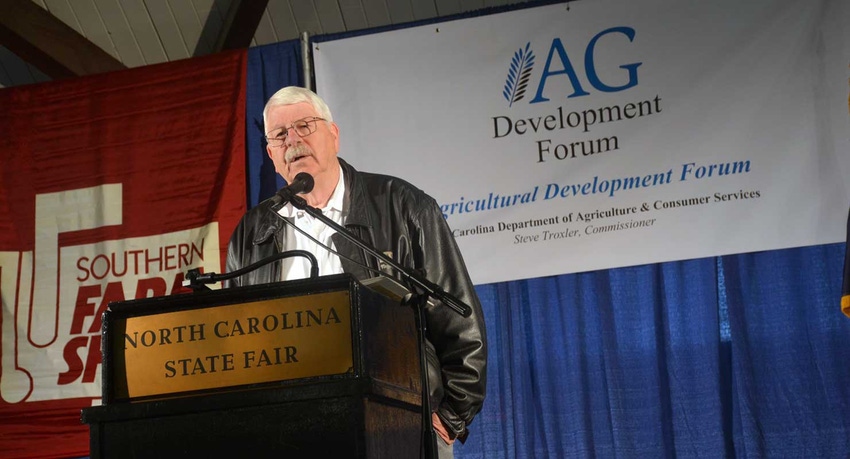
With all the challenges North Carolina agriculture has faced over the years, and with still more challenges to come, 2022 should be the year agriculture does indeed become a $100 billion industry in North Carolina. And Agriculture Commissioner Steve Troxler says it will be a red-letter day when it comes.
In fact, Troxler is banking on it. It’s a goal he successfully campaigned on, and it’s a goal he has championed in speeches across the state. Certainly, it will be a milestone for North Carolina’s largest and most important industry. Troxler says this spring, when farmers are busily planting crops, is when North Carolina will reach the $100 billion number.
“With the success we have in the production of crops, and some of the advancements in manufacturing of ag products in North Carolina, I think we’ll get there, and it will be a red-letter day. So, then what are we going to do? We’re going to say ‘yay,’ and then we’re going to look for $110 billion. We’re never going to stop trying to reach forward,” Troxler said in his annual State of North Carolina Agriculture address during the Southern Farm Show in Raleigh Feb. 3.
The most recent numbers from North Carolina State University Economist Mike Walden valued agriculture and agribusiness as a $95.9 billion a year industry in North Carolina in 2020. An exceptional year in 2021, with mostly cooperative weather, good crop yields and strong prices will certainly help push North Carolina to the $100 billion mark.
Agriculture remains North Carolina’s largest industry, and North Carolina is still for the most part a rural state. But things are rapidly changing. Foremost is the rapid population growth that shows no sign of easing. In his address, Troxler emphasized the need and value of farmland preservation.
Troxler pointed to all the new industries coming into the state which will create jobs, but at the same time put pressure on farm and timberland in the state. The loss of this valuable land concerns the agriculture commissioner. In fact, Troxler noted that the acreage lost to solar facilities in North Carolina has far overshadowed the amount of acres the state has been able to protect through conservation easements.
Troxler says there has been success in farmland preservation, but now is not the time to let up on the effort.
“Last year was a very, very good year. We protected more than 17,000 acres, and we utilized about 25 million in doing this. But when you look at a $1 billion Apple campus coming to Research Triangle Park, a 620,000 square-foot Amazon warehouse in Smithfield, and in my area in Randolph County, a $1.29 billion Toyota manufacturing plant, we’re going to move more people into North Carolina. They have to live somewhere and there has to be infrastructure. That is an ongoing problem,” Troxler said.
A growing and prosperous North Carolina with a diverse economy is certainly a good thing. Plus, it is a given that North Carolina will become more urbanized. But through all the growth, steps must be made to preserve and protect farmland and timberland so that agriculture does indeed remain the state’s largest industry.
About the Author(s)
You May Also Like






